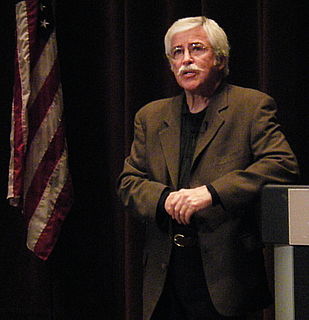Top 55 Quotes & Sayings by William Least Heat-Moon
Explore popular quotes and sayings by an American writer William Least Heat-Moon.
Last updated on April 14, 2025.
The hotel was once where things coalesced, where you could meet both townspeople and travelers. Not so in a motel. No matter how you build it, the motel remains the haunt of the quick and dirty, where the only locals are Chamber of Commerce boys every fourth Thursday. Who ever heard the returning traveler exclaim over one of the great motels of the world he stayed in? Motels can be big, but never grand.
The Lewis and Clark tale has all the all the elements that one would want to put into a movie. It has the, continual threat for life; it's got the thread of Indians; it's got disease. It has daily risk where these men may go under the water. It's got the fight with the elements. It's got the el the role of the unknown continually threatening them.
What is it in man that for a long while lies unknown and unseen only one day to emerge and push him into a new land of the eye, a new region of the mind, a place he has never dreamed of? Maybe it's like the force in spores lying quietly under asphalt until the day they push a soft, bulbous mushroom head right through the pavement. There's nothing you can do to stop it.
At any particular moment in a man's life, he can say that everything he has done and not done, that has been done and not been done to him, has brought him to that moment. If he's being installed as Chieftain or receiving a Nobel Prize, that's a fulfilling notion. But if he's in a sleeping bag at ten thousand feet in a snowstorm, parked in the middle of a highway and waiting to freeze to death, the idea can make him feel calamitously stupid.






















